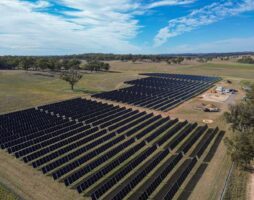Major global bank HSBC has issued a shocking assessment of a world impacted by climate change, predicting the health costs of the world’s fastest-growing economies could reach almost US$10 trillion (A$14.5 trillion) a year by 2050.
In a paper titled ‘Future cities: global warming and the risks to health’, HSBC Global Research predicts climate change will contribute to a five-fold increase in the cost of public health, as higher temperatures drive increases in the risk of heatstroke, dehydration and respiratory problems, as well as turbo-charging the growth of some diseases and illness.
The report focused on cities across the 11 members of the G20 considered ’emerging markets’. These are countries with the fastest-growing economies, including China, Brazil, India, South Korea and Indonesia, where climate impacts and rapidly changing demographics will lead to dramatic escalations in health costs.
“This confluence of factors – climate-exacerbated health impacts, demographic change and economic growth – will bring substantial new demands for medical care,” HSBC said.
“Climate impacts are already with us. Alongside rising temperatures, extreme weather events are exacerbated by global warming, becoming more frequent and more severe in many instances, while water availability is becoming more variable.”
HSBC found that the health impacts of climate change are likely to be exacerbated by ageing populations in emerging economies, with the global population of people aged over 65 expected to explode by 2050, effectively doubling the proportion of older people in the global population.
It has been predicted that 264 million additional people aged over 65 will be living in China’s urban centres by 2050.
An older, vulnerable, population will lead to a significantly harder task for health care services, as the impacts of climate change will have a disproportionate impact on the older population.
HSBC predicts that over-65’s will represent around half of all health expenditure by 2050.
“We believe the relationship between climate change and increased health exposure for the elderly has the capacity to make such spending increases even more dramatic, increasing the relative burden for countries with more elderly,” the HSBC report said.
“By our calculations, healthcare expenditure in absolute terms may go up by almost five times by 2050, to USD 9.8 trillion, based on the average GDP percentage increases anticipated for these countries and where this would move them along the curve on the chart. Roughly half of this figure will be on over-65s,” HSBC said.
HSBC noted that there is also bad news for hayfever sufferers as warmer temperatures lead to the increased production of allergens by plants, with pollen counts expected to more than double by 2040, according to a US government study.
It will be national governments that will overwhelmingly bear the burden of these increased health costs, as the majority of health costs in emerging economies are currently covered by governments, but HSBC concedes that this may change as health costs accelerate.
HSBC estimates that the 11 emerging economies within the G20 currently expend around 5 per cent of gross domestic product on health care. Health costs are expected to rise to almost 8.4 per cent by 2050.
Increase expenditure will be enabled by growing incomes in the emerging economies reviewed by HSBC, highlighting that unless future economic development and growth is able to be undertaken sustainably, increased incomes will be offset by the costs of pollution and climate change.
However, HSBC expects that governments will be forced to increase spending on adaptation and city resilience, and this may require the increased issuance of green bonds to fund investment in climate-resilient buildings and city spaces.
HSBC has identified a list of 27 products that governments and city authorities will need to invest in to reduce the impacts of climate change and to protect its citizens.
This will require investment in measures to limit the heat impacts of global warming on populations, including establishing spaces where people can seek refuge from heat conditions.
Governments will also need to invest in treatments for climate change reinforced disease and illnesses, including ensuring populations have access to clean water and are able to access treatments for illnesses like malaria, with deaths from malaria expected to grow by an additional 60,000 deaths annually by 2050.
HSBC’s findings mirror those of an Australian report published by the Queensland Government as part of its climate change adaptation plan last year, which also found that Australian cities and regions face the same health threats being generated by climate change.
That report found likewise affirmed that climate change poses one of the biggest risks to public health in the 21st century.
“Climate change exacerbates existing threats to both physical and mental health and creates new public health challenges. Many health and medical experts and international organisations consider climate change to be the biggest threat to public health in the 21st century,” the Queensland government report said.






